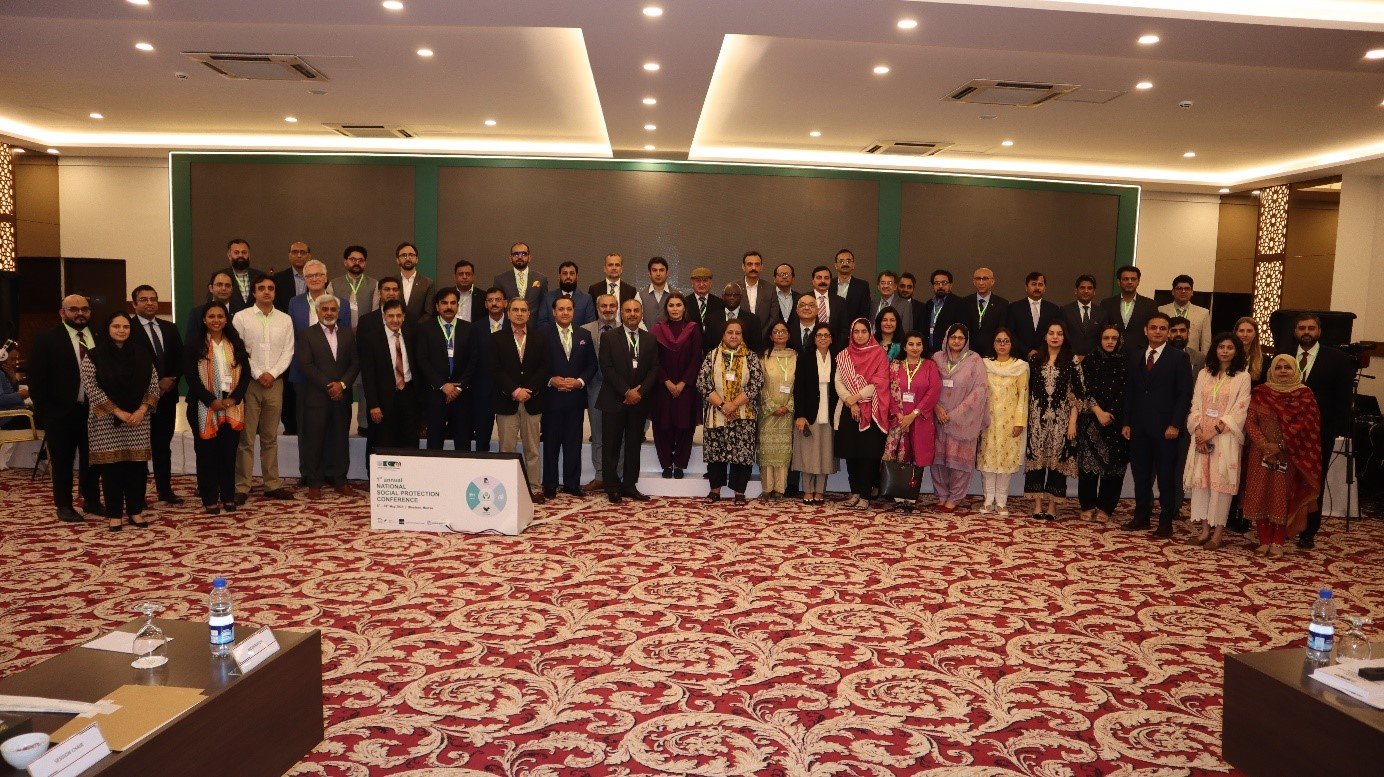Pakistan faces multi-dimensional vulnerabilities, including economic shocks, climate change, and disaster risks that disproportionately affect marginalized communities. Strengthening social protection systems is crucial to ensuring resilience and sustainable development.
The 1st National Social Protection Conference played a key role in fostering dialogue and commitments to enhance the efficiency, inclusivity, and resilience of Pakistan’s social protection system. Let’s have a look back on what we jointly agreed for the 1st National Social Protection Conference in Bhurban in 2023.

- Stronger Federal-Provincial Collaboration: A Coordination Committee was proposed to align efforts, avoid duplication, and improve delivery mechanisms.
- Two-Way Data Sharing: Developing secure exchange protocols for social registries, climate data, and administrative systems.
- Disaster Response Collaboration: Federal and provincial partners will coordinate with disaster management entities to develop joint disaster response plans.
- Innovative Financing & Co-Funding Models: Exploring ways to pool resources for sustainable and shock-responsive social protection.
 Watch Live
Watch Live